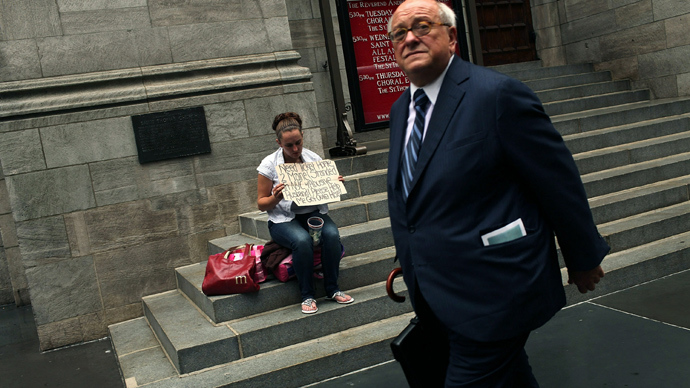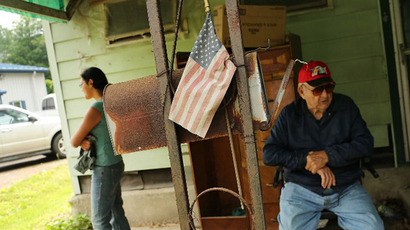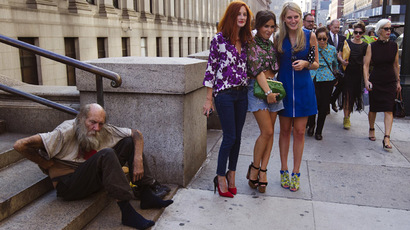Inequality leads to ill health, while equality leads to longer life for all, study finds

Inequality between the rich and the poor causes stress and harms the health of both. That’s according to a new study, which found that the poor are angry about what they don’t have, while the rich are frightened of losing their wealth.
Meanwhile, a more egalitarian society leads to longer life for
everyone.
Sir Michael Marmot, a leading researcher on inequality and a professor of epidemiology at University College London, researched the role of inequality in human health. Analyzing the UK National Health Service, he studied both low-ranking and high-ranking British civil servants. Poorer citizens are at a dramatically higher risk of ill health, with average mortality level up to three times higher than the rich, Reuters reported.
"For the poor, more inequality means more anger at what they don't have and more cognitive load from the worry about how to keep up," said Robert Sapolsky, a neuroscientist at Stanford University. "For the wealthy, it's more fear about the menace of the have-nots and more effort put into walling themselves off from them. For everyone, there's less social support — by definition, the more widely spread and unequal a hierarchy, the fewer peers one has, and true social support requires the symmetry of peers."
Giving the example of a baboon, Sapolsky said, low rank in a tribe causes stress and leads to a low immune system. In humans, too, low status causes weakened defense from infection and causes cardiovascular disease and most cancers.
Studies show that for our ancestors being ostracized from the tribe caused much more stress than facing a predator. Also, childhood bullying causes depression, leading to reduced employment prospects and a higher tendency to commit crimes. The income gap between rich and poor in the United States has now reached its peak in over a century. Inequality in income and social status causes stress and lead to health problems.
A recent IRS report shows that the wealth of the US’s richest 1 percent has grown by 31 percent, while the rest of population experienced an income rise by only 1 percent, Reuters reported.
In the most developed economies, the US has one of the most
unequal societies. Japan and Scandinavia have the opposite
situation. More egalitarian societies are conducive to longer
life expectancy. The average Japanese man has the same life
expectancy as a rich American, while the average American lives
four to five years less.














